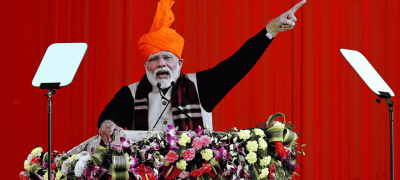Forgiveness is a precious and transformative conception in the history of mortal culture and religion. It’s a subject that transcends borders and holds a special place in mortal knowledge. In this composition, we explore the new and deeply religious nature of remission, exploring its universal nature, sacred significance, and capability to heal and save the world. There’s conflict and injustice.
- Human Tolerance: Forgiveness at its core: Forgiveness is a mortal experience and an inner feeling that transcends artistic and religious differences. This is an anticipation of resentment, rage, or a desire for vengeance against those who have wronged us. These processes frequently range from negative feelings to compassion and understanding. While the world frequently encourages forbearance in the name of spiritual health, religion gives the godly touch and encourages a rapid-fire free spiritual metamorphosis.
- Forgiveness in World persuasions: Nearly all major persuasions in the world accept and encourage remission as an important part of their beliefs. In the environment of religious training, remission takes on a special meaning that goes further simple conciliation with other people. Rather, it becomes a path to spiritual development and emancipation.
- Christianity: In Christianity, forgiveness is included in the training of Jesus Christ. Christians believe that through God’s remission they can find deliverance and eternal life. The conception of “forgiveness seventy- seven times” (Matthew 1821- 22) shows how to forgive without it getting a way of adhering God.
- Islam: In Islam, Forgiveness is considered the first virtue. Muslims are encouraged to forgive and ask Allah for remission. It’s mentioned numerous times in the Holy Quran that remission is a means of attaining Allah’s mercy and heaven. Prophet Muhammad said” He who defeats the strong has no strength, but he who controls his wrathfulness is strong.”
- Religion Buddhism emphasizes the significance of forgiveness as a way to break the cycle of pain and achieve enlightenment. Religionists believe that forgiving others frees them from negativity, leading to particular growth and peace.
- Judaism: Forgiveness is also an important part of Judaism, especially on the occasion of Yom Kippur(Day of Atonement). Jews were encouraged to seek remission from God and others. Asking for and offering remission at this time is seen as the path to spiritual mending and conciliation. Innovation for Forgiveness: Innovation for remission comes from the capability to close gaps, break problems, and promote mending in moment’s society. It challenges sundries of justice and encourages people to move beyond vengeance and the hunt for revenge, towards conciliation and redemption.
- Reconciliation and healing: Forgiveness is the power to insure harmony and concinnity between people, communities and indeed countries. South Africa’s Truth and Reconciliation Commission is a good illustration of remission as a new way to heal the deep injuries of intolerance.
- Restorative Justice: The conception of restorative justice has gained significance in recent times. The thing isn’t to discipline perpetrators, but to repair the detriment done to victims and communities. This new approach centres on remission and emphasizes the lawbreaker’s right to particular growth and redemption.
- Problem working: The world is learning remission as a tool to resolve conflicts and make peace. Organizations and individualities involved in conflict agreement frequently emphasize the need for remission to break violence and promote understanding.
- The global nature of remission: The compass of remission is broad and covers not only particular connections but also social, artistic and global confines. (i). Interpersonal connections remission in interpersonal connections is the key to maintaining connections and gemütlichkeit. This allows people to overcome resentments and misconstructions and develop healthy, long- continuing connections. (ii). Social and Cultural Healing On a broader scale, remission plays an important part in cerebral and artistic mending. exemplifications include the process of remission and conciliation in post intolerance South Africa and sweats to heal the heritage of slavery in the United States. (iii). World Peace in transnational relations, remission is seen as a way to resolve long- standing conflicts. Politic sweats frequently involve admitting past miscalculations and asking for remission as a step toward peace and stability.
It’s a new faith that has great power to bring remission, mending, conciliation and deliverance. This goes beyond particular connections and includes social, artistic and transnational confines. Forgiveness holds an important place in the world’s major persuasions and represents the mercy of Allah that people should take into account in their lives. In a world full of conflict and division, Forgiveness is a lamp of stopgap and a path to mending and redemption that transcends all boundaries. Accepting remission in our lives, both collectively and inclusively, can make the world more peaceful and harmonious.







